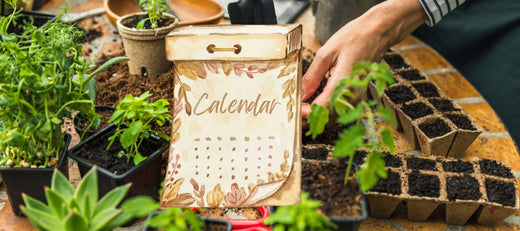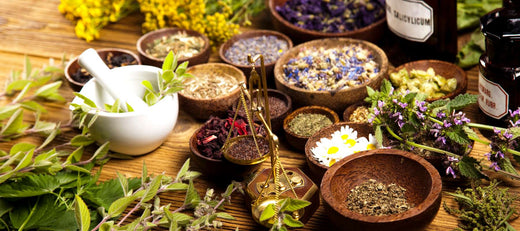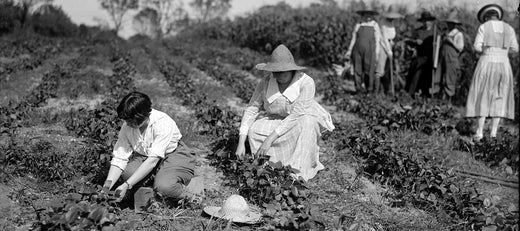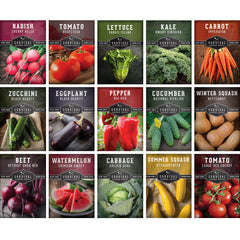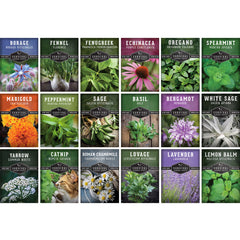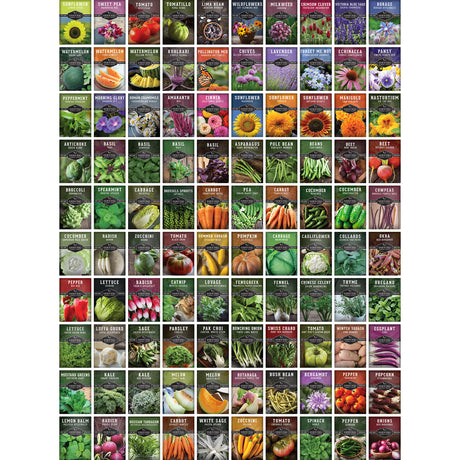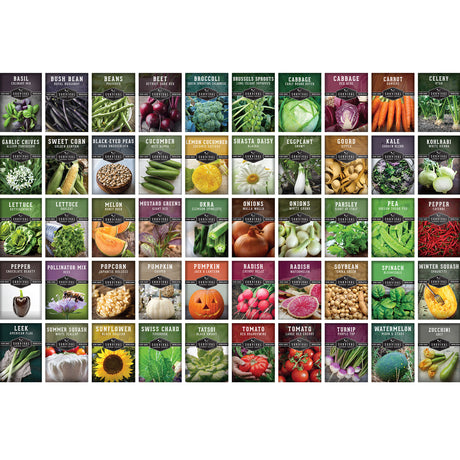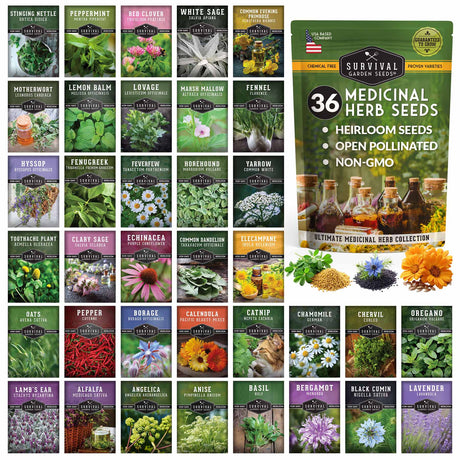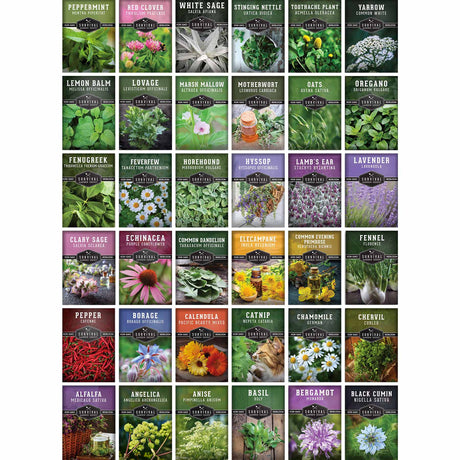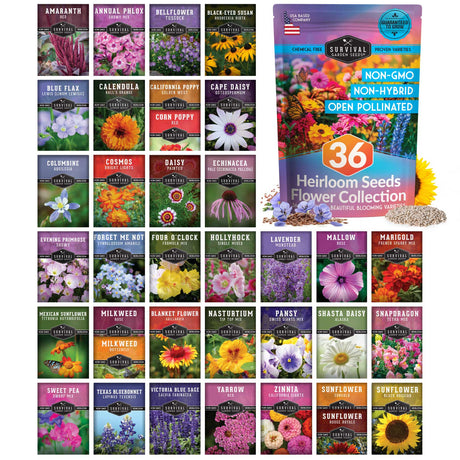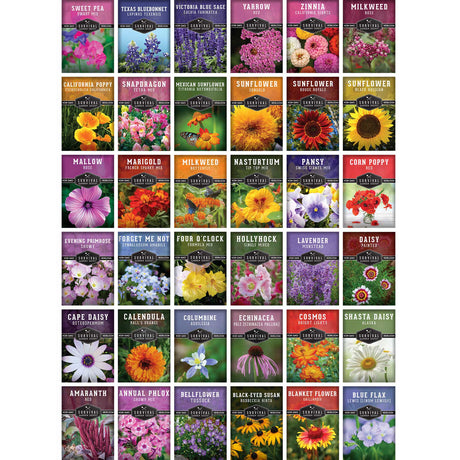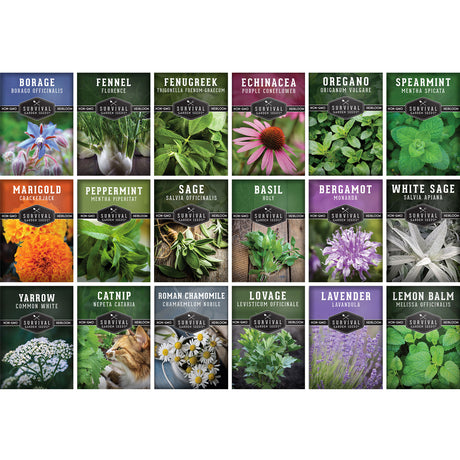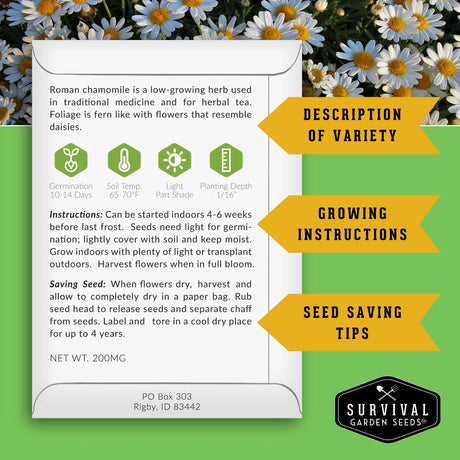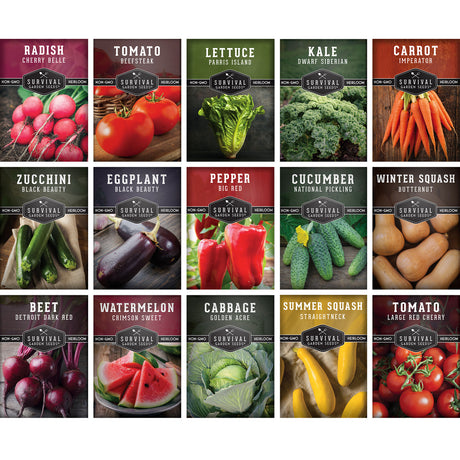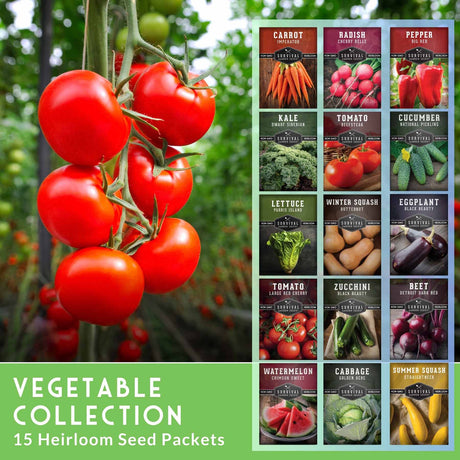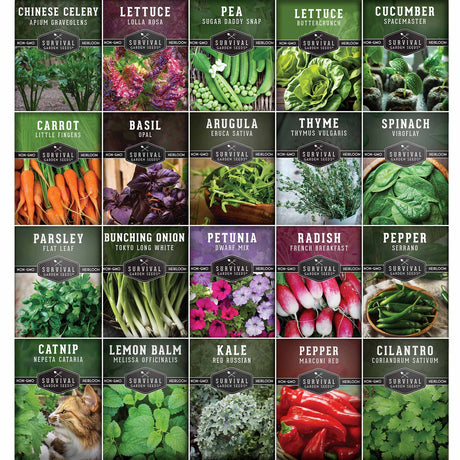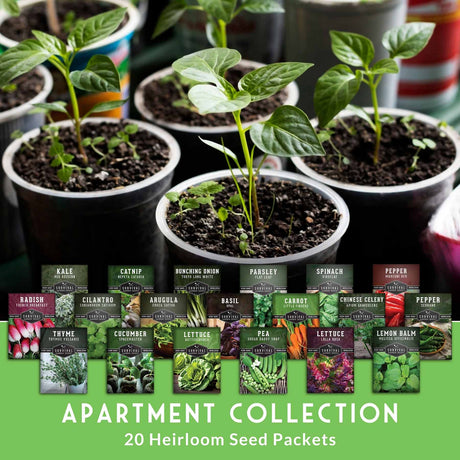If you’re growing a survival garden, it’s crucial to know how long your seeds will remain viable. There’s no easy answer; some seeds can germinate years after they are harvested, but other seeds lose their vigor much sooner and should be replaced frequently, especially if you are maintaining a seed bank or storage vault in your long-term storage supplies. Understanding the basics of seed longevity will help you become a better gardener and allow you to save your own seeds from your prized plants for continually improved yields in your own garden. This knowledge will also serve you well if you ever have to grow food as a survival strategy in a crisis or emergency.
Factors That Influence Seed Longevity
It’s important to understand that the viability of seeds can vary significantly depending on storage conditions as well as the type of seed. If you bought seeds and stored them in case of emergency, you want to be sure they’ll sprout. Let’s look at some of the key factors that determine how long vegetable seeds will last:
Seed Type: Different plants produce seeds with varying lifespans. Tomatoes, cucumbers, radishes, and lettuce seeds can remain viable for up to five years (and sometimes more). Other plants like chives, onions, parsnips, and leeks typically only last one to two years, so it’s a good idea to rotate these seeds more often.
Storage Conditions: Proper storage is essential for extending seed viability. If you're wondering how to store seeds effectively, remember that seeds should be kept in a cool, dry, and dark environment. Moisture and temperature fluctuations are the main culprits for reducing seed lifespan, so airtight containers in a cool basement or refrigerator are ideal.
Seed Maturity and Quality: Fully mature and high-quality seeds tend to last longer. Seeds harvested from stressed or diseased plants may not store as well as those from healthy, robust plants.
How to Test Seed Viability at Home
How do you know if your stored seeds will sprout when you need them? Before tossing out older seeds as a matter of course, you can easily test their viability with a simple germination test:
- Moisten a paper towel and lay it flat.
- Choose 10-20 seeds and spread them out evenly on the paper towel.
- Roll up the paper towel with the seeds inside and place it in a plastic bag or sealed container to retain moisture.
- Watch and wait. Keep the bag in a warm place. Refer to the back of your seed packet for the ideal germination temperature for your seeds for the best results. Check periodically, monitoring for mold. If most of the seeds have sprouted by the expected germination time, they’re still good to plant.

This easy method shows you how to test seed viability at home and can save you from wasting time and effort planting non-viable seeds. A good rule of thumb is that if fewer than 50% of your seeds germinate, it’s time to buy new ones.
Why Seed Viability Matters
For those relying on their garden to provide food, seed viability is more than just a matter of convenience—it's essential. Seeds that fail to germinate can leave gaps in your garden, reducing yield and making it harder to sustain your food supply. While it’s tempting to stockpile seeds for future use, it’s important to recognize that viability declines over time.
This doesn’t mean you should throw out all of your older seeds. Many gardeners find that even after several years, a portion of their seeds will still germinate. If you are trying to use up older seeds that have declined, you’ll need to plant extra to make up for the lower germination rate. It’s always wise to have fresh seeds on hand as a backup, especially for essential crops.
Tips for Extending Seed Lifespan

Proper storage and handling can make a big difference in how long your seeds last. To maximize the longevity of your seeds:
Store in a Cool, Dark Place: This could be a basement, a root cellar, or a refrigerator, but it is important that the seeds be kept dry to prevent mold or mildew that will rot the seeds.
Use Airtight Containers: Keep seeds away from moisture and fluctuating temperatures.
Vacuum Seal: To extend the shelf life even further, you can use vacuum bags and remove all of the air. As with all these storage methods, the seeds must be completely moisture-free before storing them to avoid rot.
Label Your Seeds: Include the date and type of seed to keep track of how long they’ve been stored. This way, you’ll know when it’s time to use them.
Rotate Seed Stock: Always use older seeds first and keep replenishing your supply with fresh seeds.
Grow Your Own Crops to Improve Genetic Stock

While keeping your seeds in proper storage is important, one message we really want to get out is how important it is to grow a garden, not just save your seeds for when things get tough. One of the best ways to ensure your seed stock remains robust and viable is to reserve some of your best plants specifically for saving the seeds. This way, you can gradually improve the genetic stock of your plants, selecting for traits you prefer. You’ll also get some good practice with growing and learning what does best in your unique growing conditions. All of these factors improve your resilience and self-sufficiency.
Over time, plants adapt to local pests, soil conditions, and climate. This creates a more reliable source of food for you in hard times. By saving seeds from the strongest, healthiest plants in your garden, you help preserve genetic diversity, which is so crucial to long-term food security. Seed saving also protects you from nationwide crop failures with seeds perfectly suited to your individual microclimate. This is why we’ve decided to include seed-saving instructions on the back of each packet. We know it’s an unusual decision for a seed company, but we want you to become more resilient and self-sufficient. Even the most experienced gardener needs to invest in new seeds every once in a while, so we know you’ll be back. Right?
When to Consider Buying New Seeds
So when is the right time to shop for new seeds? Some seeds may surprise you with their resilience, but others won’t. Buying new seeds periodically ensures you have the best chance at a healthy, productive garden. Here are some indicators it’s time to refresh your seed supply:
Low Germination Rates: If you’ve tested your seeds and less than half are sprouting, head to our seed shop.
Staple Crops: For essential crops like tomatoes, beans, and carrots, it’s worth having a fresh supply to guarantee your food source.
Seed Vaults: These specially packaged collections are designed to last longer and provide a reliable backup supply for your survival garden. Rotate out your alliums and other short-lived seeds as needed to keep the seed vault up to muster.
What About 10-Year Seed Vaults?
While we encourage everyone to have a seed bank of their own, we also think it’s worth warning you not to trust anyone selling emergency seed vaults with outrageous claims of seeds that will remain viable for 10-20 years. Those claims are not optimistic; they are deceptive. Even in highly controlled seed banks with scientific storage settings, many vegetable seeds cannot be reliably maintained for extended periods of time. Do you really think they’ve got the equipment at their warehouses to ensure that sort of control? Even if they did, all control is lost the moment the seeds are shipped. Don’t fall for this attempt to take advantage of people who don’t know better.
Our Commitment to Seed Quality
At Survival Garden Seeds, we don’t just rely on our suppliers' assurances of quality and proper storage. We also perform ongoing seed testing to ensure our seeds meet high standards of viability. Occasionally, we’ve had to pull seeds from our inventory that failed to meet our rigorous testing requirements, resulting in a few recalls. We understand that the average gardener doesn’t have access to the lab settings of university extensions, so we go the extra mile to make sure our seeds meet realistic and reliable standards. This commitment helps ensure that you have the best possible chance of success in your garden.
Seed longevity varies by type, storage conditions, and quality, but with careful management, you can ensure a thriving garden season after season. Testing your seeds, rotating stock, and investing in protective storage solutions are all strategies that can help you maintain a robust seed supply. With the right knowledge and quality seeds, you can take control of your food supply, one growing season at a time. We’re honored to help provide you with the seeds you need to do just that. Explore our seed collections to get started with your own survival garden today.


